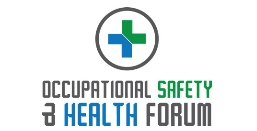Stress has become one of the great public health challenges of our time, but it still isn’t being taken as seriously as physical health concerns. April sees the return of Stress Awareness Month, now in its 30th year, to help increase public awareness about both the causes and cures for our modern stress epidemic.
According to the Mental Health Foundation, around 74% of UK adults have felt so stressed at some point over the last year they felt overwhelmed or unable to cope. Whether work-related or personal, stress can place demands on both the physical and mental health of employees with symptoms influencing their behaviour, relationships with colleagues and performance.
Stress is often a leading cause of work absences and 2019 alone saw over 602,000 cases of work-related stress and anxiety in the UK. Stress affects everyone, and it’s not something to be ashamed of. It’s a human response to the stressors and strains of modern life. But what causes it and how can we spot it within the workplace?
Causes
Stress in the workplace isn’t always caused by one singular event or incident, it can often be a culmination of day-to-day stressors that build up over time into a more sustained period of stress. Some key stressors include;
- excessive workload and/or unrealistic deadlines
- poor work/life balance
- difficulties maintaining relationships with colleagues
- lack of control over how to complete a job
- lack of support and information to complete tasks
- being unclear of job role and responsibilities
It is worth noting that stress affects everyone differently, and there is no one-size-fits-all approach to solving the issue. Individual factors such as skills, experience, age, disability, tolerance and personality may all have an impact on someone’s ability to deal with stressors.
Symptoms
Stress isn’t always easy to diagnose due to its wide-ranging impact on both physical and mental health which means it can be expressed in a variety of ways. Physically, long-term stress can increase the likelihood of heart disease, obesity, high blood pressure, immunosuppression, insomnia, headaches and much more which left untreated or managed can cause complications later in life.
Mentally, a simple sign of stress is ‘Brain Fog’ which is often described as a cloudy or muddled feeling, it is mainly characterised by confusion, forgetfulness, and a lack of focus and mental clarity. However, some key symptom indicators in the workplace could be identified by;
- Performance at Work;
- Declining performance
- Unexpected errors
- Loss of motivation or commitment
- Memory lapses
- Lack of interaction
- Arriving late / leaving early
- Behaviour Changes
- Irritable/moodiness
- Over-reactionary
- Argumentative/temperamental
- Noticeable mood swings
- Overly critical
- Clashes with colleagues
The Knock-On Effect
Alongside the individual effects, stress and mental ill health is responsible for 72 million working days lost every year, costing over £40bn to the economy, highlighting the importance of employers taking stock of the impact that work, demands, deadlines, support (or lack thereof), and much more has on an individual.
To help support you and your colleagues, hero has a range of engaging and thought-provoking packages available to identify and understand stressors, and work to help prevent stress in the future:
Mental Resilience Programme
- Webinar 30mins + Q&A (£600)
- Digital Workshop – <90mins (£800)
- Physical Activity Webinar – 20 mins (£150)
- Full Package (£1,495 + VAT)
Sessions can include; Introduction to Wellbeing, Mental Health Awareness, Positive Mindset, Better Sleep, Understanding Stress, Winter Wellbeing, Brain Health, Power of the Breath, Positive Psychology, Food & Mood, Movement for Mood, Mindfulness, Managing Anxiety, Overcoming Imposter Syndrome, Post-Pandemic Resilience, Seasonal Affective Disorder
With access to hero’s award-winning whole-person health wellbeing platform, Navigator, your team will gain access to evidence-based, research-led solutions and resources. For more information please get in touch with hero.







